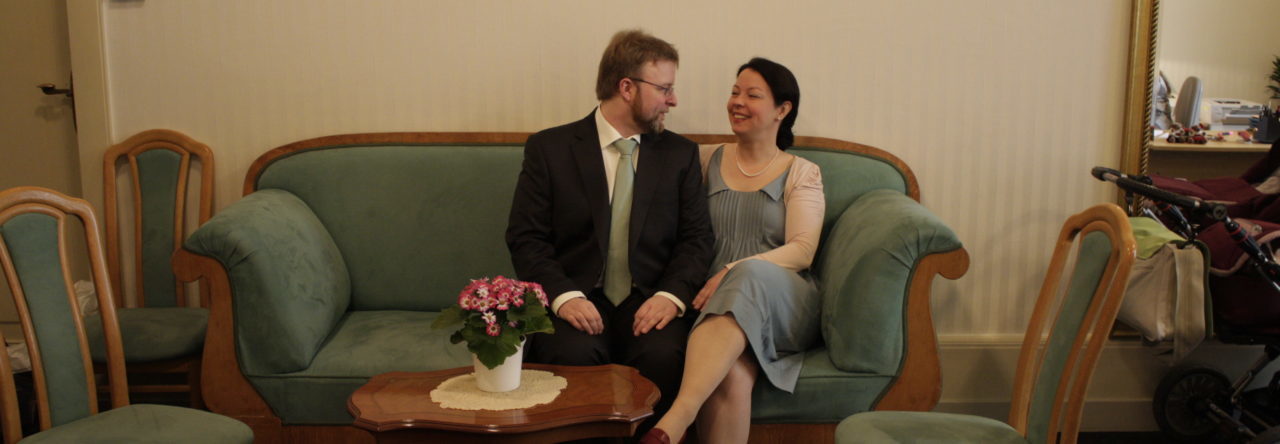Deborah Lipstadt is one of those people whom I admire for their competence and tenacity but cannot quite bring myself to like because I’m still a bit of a lefty and they, well, they are not. However the feeling is quite arbitrary and in any case her work is quite important to one of my own interests; in my spare time I work for a non-profit called shoa.de that provides information about the Holocaust and the “Third Reich” and arguments against those who still (or again) claim that the destruction of the european jews by the nazis did not happen. Deborah Lipstadt is Professor of Modern Jewish and Holocaust studies at Emory University in Atlanta. In 1993 she published Denying the Holocaust – The Growing Assault on Truth and Memory. Among those who bend the truth she counted David Irving who is mentioned on multiple occasions in the book.
David Irving is an english writer who for some 40 years covered mostly historical topics in his books. Some renowned historians hold him in high regard, although it is unclear why they would do so; from his first book on Irving made regularly claims that are either unsupported by evidence or supported only by evidence that has been purposefully manipulated and that try to exonerate Hitler and other leading Nazis. Also Irving regularly suggested that it was in fact Nazi Germany that showed restraint during WW II and that instead it were the Allied factions that had committed war crimes.
Lipstadts Denying the Holocaust was not primarily a book about Irving, but naturally she had to mention his wrong conclusions, distortions and lies. Although David Irving had denied the holocaust quite unambiguously (what with tasteless aperçus like more people “died in Kennedys car than in a gas chamber in Auschwitz”) in 1996 he still decided to sue Lipstadt. The case came under british libel law, which not only meant that Professor Lipstadt had to prove that Irving indeed was a holocaust denier, she also had to prove that his denial was done on purpose and not a result of mis-interpretation of evidence on his part. And the evidence had to be presented not to a jury of fellow scientists, but to a judge who was an expert on british law, not german history, and who could have easily given in to the temptation to render a “balanced” judgement when in fact a bias toward the truth was called for. Still, in the end Irving suffered a crushing defeat and his attempt to curtail Lipstadts right of freedom of speech failed.
This is a quite important bit. It is important because Holocaust Deniers now claim that it was Lipstadt who tried to silence Irving. So remember: It was Irving who sued Lipstadt and he lost, because she was right and he was wrong.
History on trial (Harper Perennial 2006) is Lipstadts account of the trial – a trial that took four years and millions of dollars in funds to prepare. The book demonstrates why it’s so hard to win against holocaust deniers. A denier can make up a lie in the spur of the moment. But if you want to prove him wrong you have to find the source he allegedly quotes, check the text, establish the proper context … and after you have refuted the lie the denier simply shrugs and tells another lie. And so it goes on, again and again, for some 300 pages.
Of course there are some benefits from the trial: The Holocaust Denial on Trial – Website has published the testimonials of the expert witnesses, that’s an interesting read, and there are also quite interesting fact sheets that refute some of the more notorious denial claims. And these days nobody could claim that he is a holocaust denier due to innocent errors or a lack of information – the trial presented the evidence not only to the judge but to the world at large.
On the other hand, after I had read the book I couldn’t help to think, what a waste of time and ressources. After some five years of preparation and in court we know exactly as much as before (to wit, the Holocaust really happened and David Irving is a liar). Professor Lipstadt could have done a lot more to further our understanding of the Holocaust had she had opportunity to proceed with her regular research instead of having to fight that twit. I would recommend to buy History on Trial to show support for the cause, but unless you want, through Deborahs Lipstadts eyes, a study on how the mind of a holocaust denier works (not something a sane person would want to witness from close up) it makes a somewhat depressing read. But at least there was a happy end.

